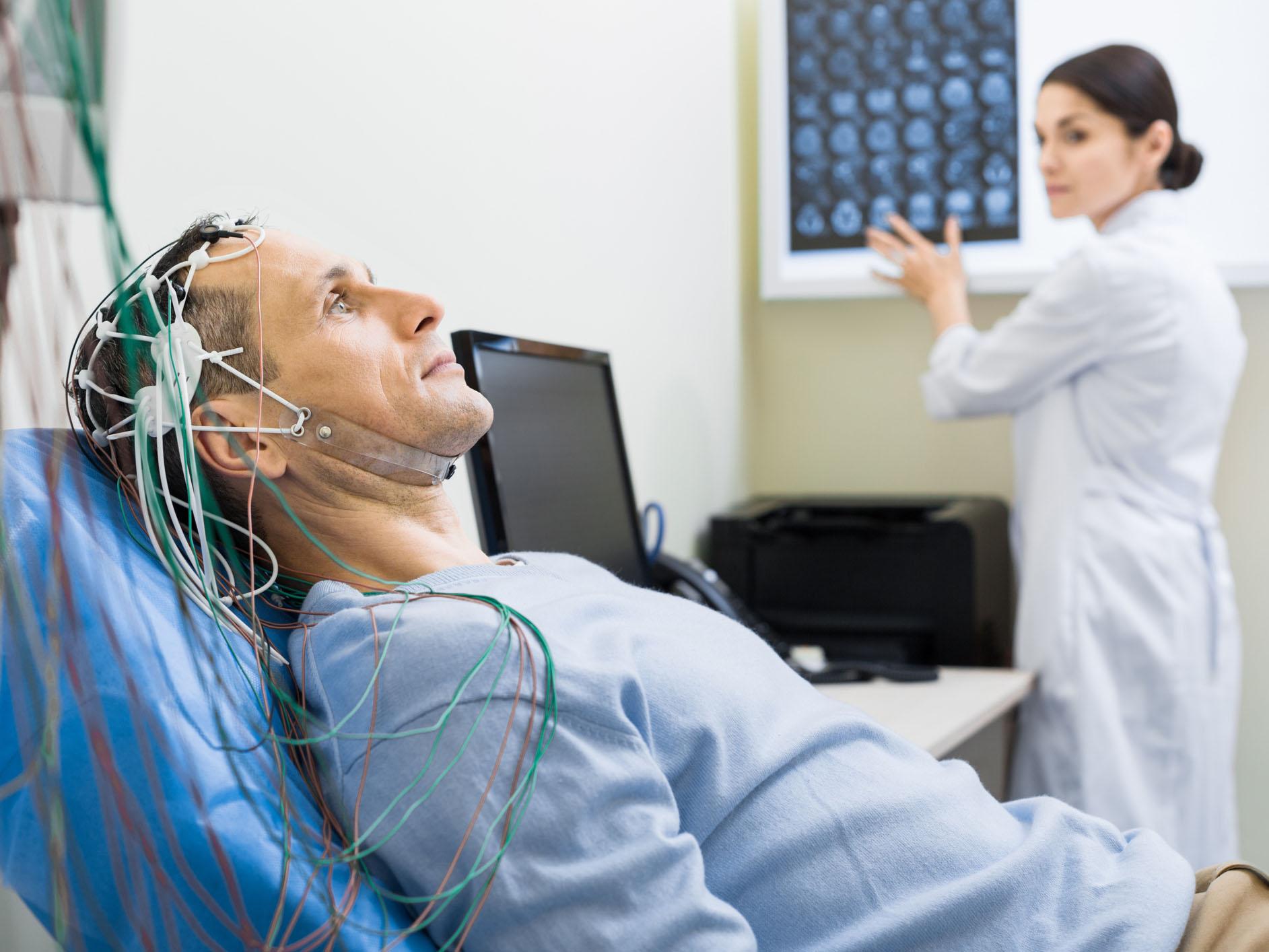The Independent's journalism is supported by our readers. When you purchase through links on our site, we may earn commission.
Electric shocks delivered to the brain restore youthful memory to older adults, experiment shows
Weak current applied to key brain regions produced intriguing results in group of people aged between 60 and 76

Your support helps us to tell the story
From reproductive rights to climate change to Big Tech, The Independent is on the ground when the story is developing. Whether it's investigating the financials of Elon Musk's pro-Trump PAC or producing our latest documentary, 'The A Word', which shines a light on the American women fighting for reproductive rights, we know how important it is to parse out the facts from the messaging.
At such a critical moment in US history, we need reporters on the ground. Your donation allows us to keep sending journalists to speak to both sides of the story.
The Independent is trusted by Americans across the entire political spectrum. And unlike many other quality news outlets, we choose not to lock Americans out of our reporting and analysis with paywalls. We believe quality journalism should be available to everyone, paid for by those who can afford it.
Your support makes all the difference.Weak electric shocks applied to the brain can be used to reverse decades of age-related memory decline in older people, if only for a limited time.
Scientists exploring memory loss found that the poor performance seen in the elderly was linked to faulty circuits in the most sophisticated parts of the brain.
They discovered that by stimulating these regions with an electrical current they could return mental abilities to pensioners they had not enjoyed since their twenties.
While the researchers only measured the effects of their technique for 50 minutes after the current was applied, they said it was evidence that a decline in mental capacity need not be inevitable.
“Negative age-related changes are not unchangeable – we can bring back the more superior working memory function you had when you were much younger,” said Dr Robert Reinhart of Boston University, who led the study.
Dr Reinhart said that while old age brings wisdom, it is also associated with the loss of working memory, “the sketch pad of the mind”, which we rely on to retain information and solve problems.
“It’s essentially where consciousness lives,” he said.
With his colleague John Nguyen, Dr Reinhart traced the decline in this ability to circuits in the neocortex and frontal lobes becoming “disconnected” in the brain.
Using caps with electrodes to deliver mild currents in a non-invasive way, they managed to reconnect these circuits in a group of people aged between 60 and 76.
In a paper published in the journal Nature Neuroscience, the pair described how they stimulated the brains of young and older people, and tested their abilities in a simple memory task.
They found around half an hour of brain stimulation improved the accuracy of the 42 older people so their results resembled those of the group aged 20 to 29.
With a rapidly ageing global population and few treatment options available for people with memory loss and dementia, experts welcomed the team’s findings as a key development in the field.
Dr Sven Braeutigam from the University of Oxford, who was not involved in the research, said it was “important early stage work that may well stimulate fruitful research into effective treatments of age-related decline of human cognitive function”.
However, there were also warnings that much more work would need to be undertaken before this technique could be rolled out in clinics.
The scientists did not test their subjects’ abilities beyond the initial testing session, so the long-term effects remain elusive.
“There is no indication that any beneficial effects of stimulation persist beyond the experimental session,” said Professor Dorothy Bishop, also from the University of Oxford.
While the work is still in its early days, Dr Reinhart said he was intrigued to see where it would lead, and noted that companies are already working to bring this kind of technology to the market.
Join our commenting forum
Join thought-provoking conversations, follow other Independent readers and see their replies
Comments